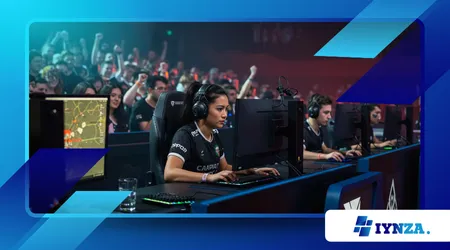Biggest Game Delays of 2024 and Why They Happened

In the gaming world, delays are a double-edged sword. While they frustrate players eager to dive into new adventures, they also often signal a studio’s commitment to delivering polished experiences.
Anúncios
The year 2024 was marked by several high-profile postponements that reshaped release calendars and fueled heated discussions.
Understanding why these delays occurred reveals much about the evolving nature of game development.
A Shifting Industry Landscape
Game development has never been more complex. With increasingly ambitious projects, global teams, remote workflows, and rising player expectations, delays have become almost inevitable.
According to a 2025 report by GameDev Insights, nearly 38% of major game releases scheduled for 2024 were delayed by at least three months. This highlights how difficult it is for studios to balance innovation with practicality.
The biggest game delays of 2024 weren’t random—they were the result of specific challenges.
Notable Delays and Their Causes
Several games stood out among the many titles delayed in 2024, each facing unique obstacles during their development cycles.
Below, we explore the most prominent examples and the factors that contributed to their postponements.
Assassin’s Creed Shadows
Ubisoft’s highly anticipated title was initially planned for late 2024 but ended up delayed to February 2025.
Ubisoft cited the need for more polish, with extra time required to fine-tune the new parkour and stealth mechanics. The decision aimed to meet the elevated expectations following the success of their recent releases.
Avowed
Obsidian’s fantasy RPG, Avowed, was another major project impacted by delays. Originally expected in 2024, it was pushed to early 2025.
The developers needed additional time to refine the game’s combat systems, enhance performance across all platforms, and deliver a smoother player experience.
Read also: How AI is transforming game development and player experiences
Cities: Skylines II
While the PC version of Cities: Skylines II launched, the console versions faced serious optimization challenges.
Developers decided to delay these editions indefinitely, prioritizing stability and quality rather than rushing to meet an arbitrary deadline.
Earthblade
Earthblade, from the creators of Celeste, experienced multiple setbacks.
Despite high expectations, the game ultimately faced cancellation due to internal creative conflicts and disputes over intellectual property rights, highlighting how even promising projects can collapse behind the scenes.
Football Manager 25
Football Manager 25 surprised the industry with its cancellation after struggling to transition to a new game engine.
Facing mounting delays and insurmountable development bottlenecks, Sports Interactive chose to pull the plug rather than risk a disastrous mid-season launch.
Blizzard’s Odyssey
Blizzard’s survival game, codenamed Odyssey, became another notable cancellation.
After six years in development, it was shut down due to a combination of engine transitions, employee turnover, and restructuring pressures following Microsoft’s acquisition of Activision Blizzard.
Two Examples That Illustrate the Bigger Picture
Example 1: A major open-world action game, unnamed here for confidentiality reasons, delayed its release by ten months after early testers reported severe frame rate issues during large-scale battles. Instead of patching post-launch, the studio chose a full overhaul.
Example 2: An indie title set for a summer release slipped into 2025 because the two-person team underestimated the time required to implement accessibility features requested by their growing community.
Broader Factors Behind 2024’s Delays
The delays of 2024 were not isolated incidents tied only to individual projects.
A series of broader industry factors combined to create an environment where pushing back release dates became more common and, in some cases, unavoidable.
- Post-Pandemic Production Lag: Remote workflows introduced new inefficiencies that many studios continued to grapple with long after the world reopened. Coordination across global teams proved challenging, stretching development timelines.
- Increased Quality Standards: In an era where players are quick to criticize buggy launches, studios have little room for error. Rather than rush incomplete games to market, many developers chose the safer path of delay to meet rising expectations.
- Financial Realities: The gaming industry faced economic headwinds in 2024, including budget cuts, reduced venture funding, and volatile consumer spending. Studios with tighter margins had to reallocate resources carefully, often leading to slowed or halted development cycles.
- Strikes and Labor Disputes: The SAG-AFTRA strike targeting video game voice actors and performance capture artists created bottlenecks in narrative-heavy titles. Projects reliant on fresh recording sessions had no choice but to adjust schedules.
These factors compounded each other, turning what might have been minor production hiccups into substantial postponements across the industry.
One Analogy to Understand It
Think of game development like building a skyscraper. You can’t just rush the foundation because you want the building finished by a certain date.
If the base isn’t right, the whole structure fails. Delays, while frustrating, often save studios from future collapse.
A Key Statistic
A 2025 survey by Player Pulse revealed that 68% of gamers would rather wait longer for a polished game than endure a rushed, buggy launch.
This shows a clear shift in community expectations—quality matters more than speed.
A Question Worth Pondering
If your favorite game had launched broken just to meet a deadline, would you still love it as much today?
Conclusion
The biggest game delays of 2024 weren’t signs of failure. They were signs of studios learning, adapting, and choosing long-term quality over short-term gratification.
While it’s tempting to be disappointed, these delays often lead to better, more memorable experiences.
Game development is an unpredictable journey. But if there’s one thing 2024 taught us, it’s that patience is often rewarded with greatness.
FAQ
1. Why do game delays happen so frequently now?
Games have become more complex, requiring larger teams, more resources, and longer development cycles.
2. How does a strike like SAG-AFTRA’s affect game development?
It can delay voice recording, motion capture, and narrative-driven projects, pushing back entire schedules.
3. Are canceled games common?
Unfortunately, yes. Many projects are canceled before or after years of development due to creative differences, budget issues, or technical hurdles.
4. Do delays usually improve game quality?
In most cases, yes. Delays often allow teams to fix bugs, enhance features, and deliver a more polished experience.
5. Should players be worried when a game is delayed?
Not necessarily. While multiple delays can signal deeper problems, a single delay often indicates a studio’s commitment to quality.
